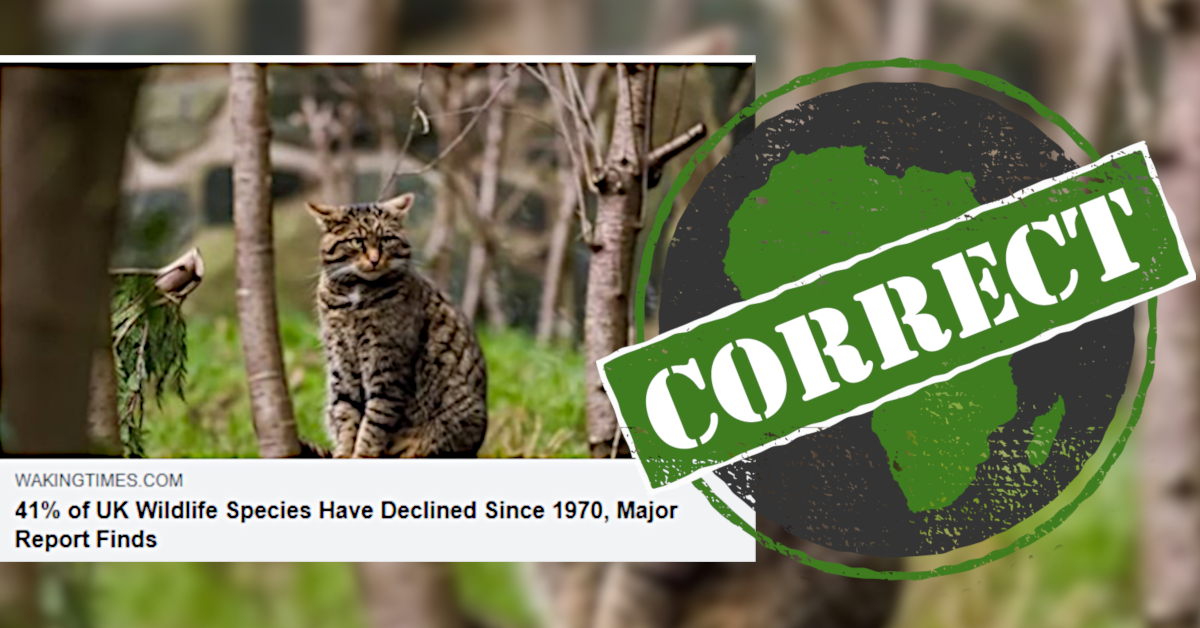Have 41% of wild species in the UK declined in the past 50 years?
That’s the claim in an October 2019 article on the website Waking Times, headlined: “41% of UK wildlife species have declined since 1970, major report finds.”
The article was shared on Facebook, and flagged as false by the social network’s fact-checking system. This sent an alert for Africa Check to verify it.

The Waking Times article is a reprint of an earlier piece by Eco Watch.
That article is based on the 2019 State of Nature Report by the United Kingdom’s National Biodiversity Network (NBN). The NBN is not a single organisation, but a group of more than 200 members that collaborate to produce accurate information on the condition of wildlife in the UK.
The report does find that 41% of species in the UK have “shown strong or moderate decreases in abundance” since 1970.
This, it says, is a larger share than the 26% of species that have shown an increase in the same period. – Keegan Leech
That’s the claim in an October 2019 article on the website Waking Times, headlined: “41% of UK wildlife species have declined since 1970, major report finds.”
The article was shared on Facebook, and flagged as false by the social network’s fact-checking system. This sent an alert for Africa Check to verify it.

‘Decreases in abundance’
The Waking Times article is a reprint of an earlier piece by Eco Watch.
That article is based on the 2019 State of Nature Report by the United Kingdom’s National Biodiversity Network (NBN). The NBN is not a single organisation, but a group of more than 200 members that collaborate to produce accurate information on the condition of wildlife in the UK.
The report does find that 41% of species in the UK have “shown strong or moderate decreases in abundance” since 1970.
This, it says, is a larger share than the 26% of species that have shown an increase in the same period. – Keegan Leech
Republish our content for free
For publishers: what to do if your post is rated false
A fact-checker has rated your Facebook or Instagram post as “false”, “altered”, “partly false” or “missing context”. This could have serious consequences. What do you do?
Click on our guide for the steps you should follow.
Publishers guideAfrica Check teams up with Facebook
Africa Check is a partner in Meta's third-party fact-checking programme to help stop the spread of false information on social media.
The content we rate as “false” will be downgraded on Facebook and Instagram. This means fewer people will see it.
You can also help identify false information on Facebook. This guide explains how.


Add new comment